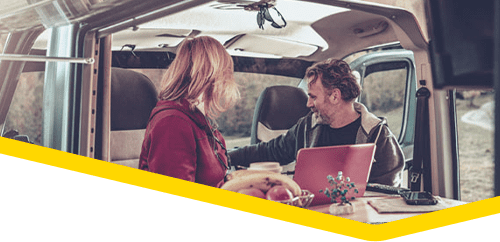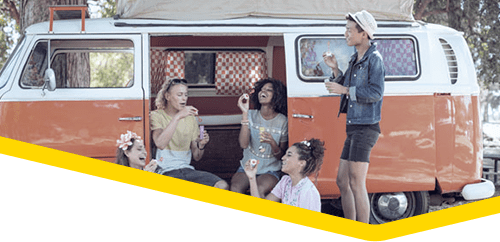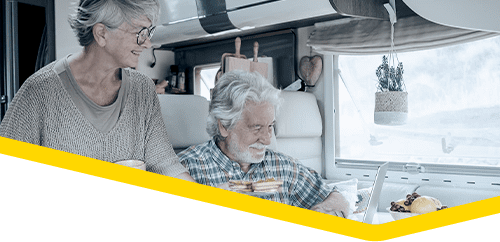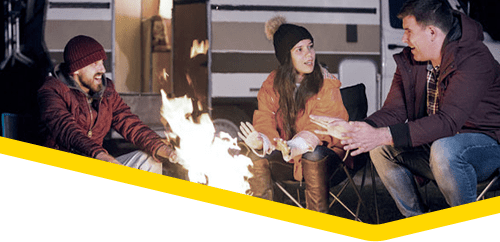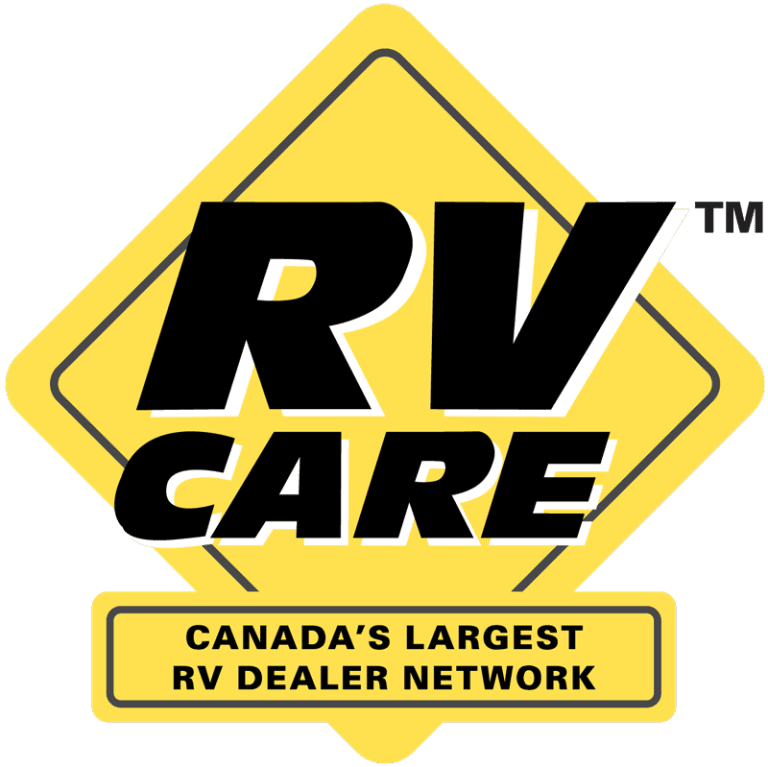Solo RV Travel in Canada: Safety and Enjoyment
Hitting the open road alone in an RV offers amazing freedom. You can explore Canada’s stunning landscapes on your own schedule. Many people dream of this kind of travel. It allows for quiet reflection and personal growth. Canada, with its vast spaces and natural beauty, is a perfect place for it.
But travelling solo, especially in an RV, can seem scary. Questions about safety often come up. Can I handle the RV alone? What if something breaks down? Is it safe to camp by myself? These are normal concerns. Good news: solo RV travel in Canada can be safe and very rewarding. You just need some planning and the right information.
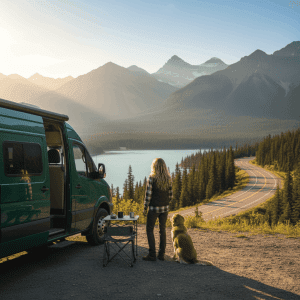
This post gives you practical tips for solo RVing in Canada. We cover how to prepare, stay safe on the road, and truly enjoy your journey. With the right approach, you can explore Canada confidently and make unforgettable memories.
Preparing for Your Solo Canadian RV Adventure
Good preparation is key to a smooth solo trip. Taking time to plan helps you feel more confident and handle challenges better. Here’s what to focus on before you go.
Choosing the Right RV for Solo Travel
The RV you choose greatly affects your trip. As a solo traveler, think about ease of handling.
- Size Matters: Smaller RVs are often easier to drive and park. This is helpful in busy campgrounds, cities, or on narrow roads. Think Class B camper vans, small Class C motorhomes, or truck campers. Some small travel trailers are also good options if you have a capable tow vehicle.
- Ease of Use: Consider how easy it is to set up and take down camp alone. Look for simple systems for hookups (water, electricity, sewer). Check how easy it is to level the RV by yourself.
- Your Needs: What do you really need? A full bathroom? A dedicated bed, or is converting a dinette okay? Think about kitchen space and storage for your gear. Make a list of must-haves versus nice-to-haves.
Finding the right fit takes research. A great place to start is RVC-Navigator. It lists new and used RVs for sale from trusted dealers across Canada. You can browse different types and sizes perfect for solo adventurers. Seeing what’s available helps narrow down your choice.
Essential Pre-Trip RV Maintenance & Checks
When you travel alone, you are your own mechanic, navigator, and helper. Keeping your RV in top shape is vital for safety and peace of mind. Don’t skip these checks before every trip:
- Tires: Check tire pressure when cold. Look for wear and tear or damage. Ensure your spare tire is ready to go.
- Fluids: Check engine oil, coolant, brake fluid, and windshield washer fluid levels (for motorhomes).
- Batteries: Check water levels (if applicable) in house batteries. Ensure terminals are clean and connections are tight.
- Propane: Check propane levels. Inspect hoses and connections for leaks (use soapy water). Ensure detectors (propane, carbon monoxide, smoke) are working.
- Lights: Test all exterior lights: headlights, taillights, brake lights, turn signals. Check interior lights too.
- Brakes: Test your brakes. If towing, check the trailer brake controller and breakaway switch.
- Hitch: If towing, inspect the hitch, coupler, safety chains, and wiring harness.
Make your own pre-trip checklist. Go through it every time. Consider getting a professional RV inspection before a long journey, especially if you’re new to RVing.
Route Planning: Mapping Your Canadian Journey Safely
Canada is huge. Driving distances can be long, and conditions vary wildly. Smart route planning helps avoid stress and potential problems.
- Be Realistic: Don’t plan too much driving in one day. Aim for shorter driving days, maybe 3-5 hours. This leaves time for breaks, unexpected stops, and setting up camp before dark.
- Know the Roads: Some Canadian highways are remote. Mountain passes can be steep. Gravel roads exist in some areas. Research your route using RV-specific GPS or apps that consider vehicle size. Always carry updated paper maps as a backup, especially where cell service is spotty. Check provincial road reports (like 511 services) before you head out.
- Check Connectivity: Cell service can disappear in national parks, northern regions, or even some rural areas. Note where you expect to lose signal. Plan your check-ins with family or friends around areas with service.
- Plan for Services: Note locations of gas stations, grocery stores, and dump stations along your route. Fuel can be scarce in remote parts. Fill up when you have the chance.
- Consider Weather: Canadian weather changes quickly. Check forecasts frequently. Be prepared for rain, wind, or even snow depending on the season and location (especially in the mountains or shoulder seasons).
- Book Ahead (Sometimes): For popular spots like Parks Canada locations or popular provincial parks, especially in summer, book campsites in advance. For less busy areas or seasons, you might have more flexibility.
Packing Smart: Safety and Comfort Essentials
Packing the right gear makes your solo trip safer and more comfortable. Think about essentials for both you and your RV.
Safety Gear:
- Well-stocked first-aid kit.
- Fire extinguisher (know how to use it).
- Emergency road kit (flares or triangles, jumper cables, basic tools).
- Reliable communication device (especially for remote areas). A satellite messenger like Garmin inReach or Spot allows two-way texting or SOS calls without cell signal.
- Bear spray (and know how to use it) if travelling in bear country (much of Canada!). Check local rules.
- Flashlight and headlamp with extra batteries.
- Basic toolkit for simple RV repairs.
Comfort and Convenience:
- Appropriate clothing layers for Canada’s variable climate. Include rain gear and warm layers, even in summer.
- Leveling blocks for uneven campsites.
- Water hose (potable water safe) and water pressure regulator.
- Sewer hose and connections.
- Electrical adapters (30amp to 15amp, possibly 50amp to 30amp).
- Comfortable bedding and camp chairs.
You can find many essential RV parts and accessories online. Shop RV Care is a helpful resource for ordering items you need before your trip or even while on the road.
Staying Safe on the Road: Practical Tips for Solo RVers in Canada
Feeling safe allows you to relax and enjoy your solo journey. Focus on awareness and simple precautions.
Campsite Selection and Setup
Where you park your RV overnight matters. Choose your campsites wisely.
- Research Campgrounds: Read recent reviews online (Google, Campendium, RV Parky). Look for comments on safety, cleanliness, and staff presence. Well-managed campgrounds often feel safer.
- Consider Official Parks: Provincial Parks (like Ontario Parks or BC Parks) and Parks Canada campgrounds are generally good choices. They often have staff, patrols, and established rules.
- Location, Location, Location: Within the campground, choose a site that feels right for you. Some prefer sites near facilities or the entrance for visibility. Others prefer more secluded spots. Trust your gut feeling.
- Arrive Before Dark: Setting up in daylight is easier and safer. You can see your surroundings and get oriented.
- Setup Routine: Always lock your RV doors and storage compartments, even for short walks. Close blinds or curtains at night. Keep valuable items like phones and laptops out of sight.
Personal Safety Practices
Your awareness is your best safety tool. Stay alert and take simple precautions.
- Be Aware of Surroundings: Pay attention at rest stops, gas stations, and trailheads. Notice who is around. If a place feels uncomfortable, leave.
- Trust Your Instincts: If something feels off, it probably is. Don’t hesitate to move your RV or leave an area if you feel unsafe.
- Share Your Location: Let a trusted friend or family member know your planned route and schedule. Check in regularly via text, call, or satellite message. Let them know if your plans change.
- Secure Your RV: Use deadbolts. Consider extra locks for doors or windows if it makes you feel more secure. A small motion-sensor light outside your door can deter unwanted visitors.
- Meet People Safely: RVers are often friendly. Chatting with neighbours is part of the fun. Just be cautious about sharing too much personal information (like your exact route or that you’re always alone).
- Project Confidence: Walk purposefully. Look like you know where you’re going, even if you’re unsure.
Dealing with RV Breakdowns and Emergencies Solo
RV issues can happen. Being prepared helps you handle them calmly.
- Basic Knowledge: Learn how to do simple troubleshooting. Know where your fuses and breakers are. Understand how to reset the GFI outlets. Read your RV manuals.
- Roadside Assistance: Ensure you have a good roadside assistance plan that specifically covers RVs (towing an RV is expensive!). Keep the number handy.
- Emergency Fund: Have some money set aside for unexpected repairs.
- RV Care Network: This is a huge benefit for RVers in Canada. RV Care is Canada’s largest network of independent RV dealers. If you buy your RV from an RV Care dealership or are an RV Care customer, you get access to priority service across Canada and the USA. If you have an urgent issue on the road, you can find a nearby RV Care dealer. They prioritize travelers needing help. Knowing this network exists provides great peace of mind, especially when traveling solo. Their approach is “service first,” meaning they focus on getting travelers back on the road.
Wildlife Awareness in Canada
Canada has amazing wildlife, but encounters require respect and caution.
- Know the Locals: Be aware of common wildlife in the areas you visit (bears, moose, elk, deer, coyotes, raccoons). Parks Canada and provincial park websites have specific wildlife safety info.
- Store Food Properly: Never leave food, coolers, or garbage outside, especially overnight. Use provided bear-proof lockers where available. Cook and eat away from your sleeping area if tent camping, and store scented items securely inside your RV.
- Keep a Clean Site: Clean up immediately after eating. Don’t leave pet food outside. Dispose of garbage in designated wildlife-proof bins.
- Never Feed Wildlife: It’s bad for them and can make them lose their natural fear of humans, creating dangerous situations.
- Keep Your Distance: Observe wildlife from afar. Use binoculars or a zoom lens. Never approach wild animals. If you encounter wildlife on a trail, back away slowly. Carry bear spray in bear country and know how to use it.
Embracing the Journey: Maximizing Enjoyment as a Solo RVer
Safety is important, but solo RVing is also about joy and discovery! Make the most of your unique travel style.
Finding Your Rhythm and Embracing Solitude
One of the best parts of solo travel is freedom. There’s no one else’s schedule to follow.
- Set Your Own Pace: Sleep in late or get up for the sunrise. Drive short distances or stay put for days. It’s entirely up to you.
- Connect with Nature: Canada offers endless opportunities. Hike quiet trails. Kayak on calm lakes. Sit by the campfire and watch the stars in places like Jasper National Park’s Dark Sky Preserve. Enjoy the peace.
- Time for You: Solo travel allows time for reflection. Read that book you’ve been meaning to finish. Write in a journal. Simply sit and be present in beautiful surroundings.
Connecting with Others (When You Want To)
Solo doesn’t have to mean lonely. You can connect with people when you choose.
- Campground Life: Many campgrounds have social events like potlucks or coffee hours. Common areas are natural places to meet fellow travelers.
- Online Communities: Look for Facebook groups or online forums for solo RVers. You can find tips, support, and maybe even arrange meetups.
- RV Clubs: Consider joining an RV club like the Canadian RV Association (CRVA) members or regional clubs. They often host rallies and events.
- Be Open: A friendly smile or wave can lead to interesting conversations with campground neighbours. Share travel stories and tips.
Making Your RV a Cozy Solo Haven
Your RV is your home on wheels. Make it comfortable and functional for you.
- Personalize Your Space: Add touches that make it feel like yours – photos, blankets, small decorations.
- Organize for One: Set up storage that works for your needs. Create zones for different activities (cooking, relaxing, sleeping).
- Hobbies on the Road: Make space for your interests. Bring your camera gear, painting supplies, yoga mat, or fishing rod.
- Create Rituals: Simple routines make RV life feel more grounded. Enjoy your morning coffee watching the sunrise. Have a favourite camp meal. Listen to music while you relax in the evening.
FAQ: Solo RV Travel in Canada
Here are answers to common questions about traveling alone in an RV in Canada.
Q1: Is solo RVing safe for a woman/man in Canada?
A: Yes, solo RVing can be very safe in Canada for anyone. Safety depends more on preparation and behaviour than gender. By choosing campsites carefully, staying aware of your surroundings, securing your RV properly, and having reliable communication methods, solo travelers can explore Canada safely. Thousands of people, including many women, enjoy solo RV travel across Canada each year without incident. Trusting your intuition is also key.
Q2: What’s the best type/size of RV for a solo traveler in Canada?
A: There’s no single “best” RV. Many solo travelers prefer smaller units like Class B campervans, small Class C motorhomes (under 25 feet), or truck campers. These are easier to drive, park in various locations (including cities and standard parking spots), consume less fuel, and can access more remote roads or smaller campsites. However, some solo travelers prefer the extra space of a slightly larger RV or small trailer. Consider your comfort level with driving, your budget, and how much space you truly need. Browse listings on RVC-Navigator can give you a good idea of available options.
Q3: How do I handle potential RV breakdowns alone?
A: Preparation is crucial. Learn basic RV systems and troubleshooting (like checking fuses or resetting appliances). Carry a good toolkit and essential spare parts (like fuses, bulbs). Have reliable RV-specific roadside assistance. Know about resources like the RV Care network. If you have an urgent mechanical issue, their network of dealers across Canada offers priority service to get travelers back on the road quickly. Having a satellite communication device is vital in remote Canadian areas without cell signal so you can call for help if needed.
Q4: How can I combat loneliness while RVing solo?
A: Loneliness can happen, but there are ways to manage it. Stay connected with loved ones back home through regular calls or video chats (when you have service). Be open to meeting people at campgrounds, but don’t feel pressured. Join online groups for solo RVers to connect virtually. Plan stops in towns where you can interact with locals or participate in activities. Bring hobbies to keep you engaged. Importantly, try to reframe solitude as a positive opportunity for self-discovery and connection with nature.
Q5: What are some good Canadian destinations for a first-time solo RV trip?
A: For a first trip, consider areas with good infrastructure and support. The Maritime provinces (PEI, Nova Scotia, New Brunswick) offer beautiful coastal drives and friendly communities. Southern Ontario or Quebec have many well-equipped provincial parks (Sépaq in Quebec). The Okanagan Valley in British Columbia provides wineries, lakes, and good campgrounds. Driving a well-traveled route like the Trans-Canada Highway through parts of the prairies can also be a good start. Choose shorter trips closer to home initially to build confidence before tackling very remote areas.
Your Solo Canadian Adventure Awaits
Traveling solo in an RV across Canada might seem like a big step, but it’s absolutely possible and incredibly rewarding. With careful planning, smart safety habits, and the right attitude, you can navigate the challenges and fully embrace the freedom. Canada’s diverse landscapes, from coastal shores to mountain peaks, are waiting for you to explore them at your own pace.
Feel empowered to take that journey. The preparation you do now builds confidence for the road ahead. Remember the resources available to help you.
Ready to start planning?
- Find your ideal solo-friendly RV by exploring options from trusted dealers across Canada on RVC-Navigator.
- Stock up on essential safety gear, parts, and handy accessories for your trip at Shop RV Care.
- Travel with less worry, knowing that if you need urgent RV service, the RV Care network of dealers across North America prioritizes travelers.
Your solo Canadian RV adventure is out there. Happy travels!
